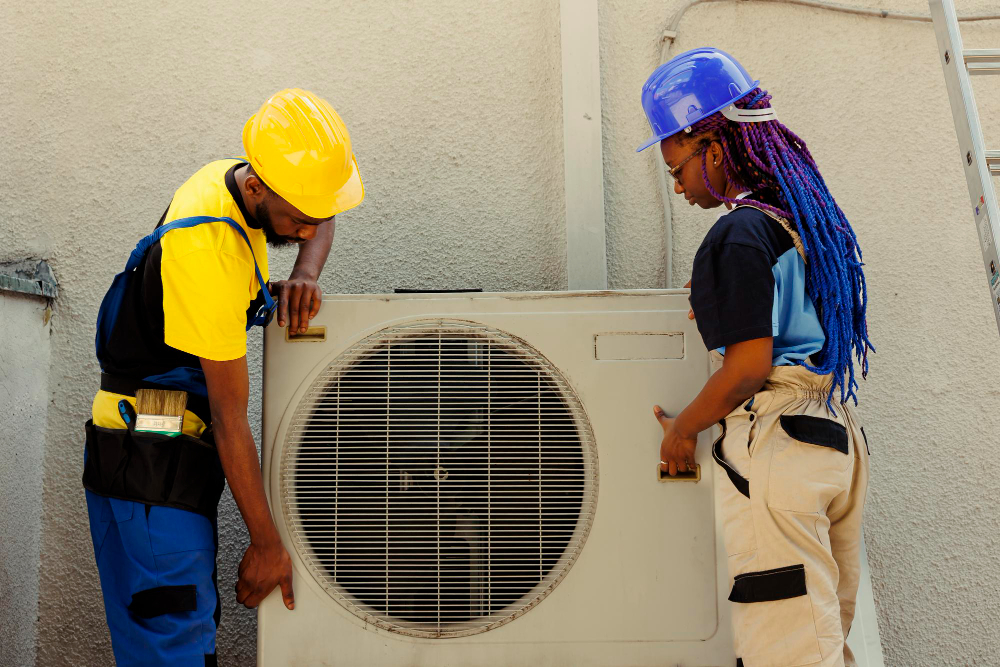HVAC Systems - Repairing vs. Replacing

Ignoring the raspy growl of your HVAC system is one of those decisions you could regret or celebrate for years to come. In Central Florida, where the air is as humid as it is hot, this isn't just about comfort; it's about your sanity on a particularly sweltering day. But making the call on whether to repair or replace isn't always a clear cut, especially when you're navigating a budget or considering the longer term implications. So how do you decide what the best path for your HVAC system is? Let's dive into the factors that should sway your decision.
Understanding the Lifespan of HVAC Systems
Before you can decide whether to repair or replace, you need to understand where your system is on its lifecycle. Most HVAC systems have a lifespan of around 15 years, but several factors can influence this:
- Quality of your equipment: If you invested in high-quality equipment, it might last a bit longer than 15 years.
- Maintenance: Regular and proper maintenance can significantly extend the lifespan of your system by keeping it in good working order.
- Usage: If you use your HVAC system round the clock, you can expect it to last the average number of years or less.
Assessing the Situation: When to Consider HVAC Repair
There are times when a malfunction does not necessarily spell doom for your HVAC unit. If you're experiencing any of the following issues, a repair might be the better option:
- Minor repairs: An occasional blip, like a clogged drain line or a small refrigerant leak, can easily be fixed with a repair.
- Energy bills: If you notice a spike in your energy bills, a professional can diagnose and repair issues that are causing your system to be less efficient.
- Relatively new equipment: If your HVAC system is less than 10 years old, it is likely designed to be repaired rather than replaced.
The Point of No Return: Repairing Moot Problems
There are, however, signs that indicate repair is just a Band-Aid for the inevitable. It might be time to consider replacement if you're witnessing the following:
- Frequent repairs: If you're calling the HVAC technician every other week, the cost and inconvenience of these frequent repairs might outweigh the benefits of a new system.
- Old age: A general rule is if your HVAC system is over 15 years old and needs a significant repair, it's often more cost-effective to replace the unit.
- Poor efficiency: If your system is not keeping your home comfortable, it might be more energy-efficient to replace it with a newer, more efficient model.
Calculating the Cost: Repair vs. Replacement
Apart from considering the age and condition of your unit, the cost is often a significant factor in your decision-making process. Here's how to analyze the situation:
- Repair costs: If your repair costs exceed 50% of the value of a new unit, it's generally financially smarter to replace it.
- Utility bills: If your energy bills continue to climb, the cost of running an inefficient system can justify purchasing a new, more energy-efficient system.
The Comfort Quotient: When Comfort Can't Wait
Lastly, consider the immediate need for comfort. Replacing your HVAC system is an investment that you might need to make before a sweltering Florida summer sets in. The comfort of your home and family should not be underestimated.
Browsing for the Best Deal
When you've weighed all the factors and are leaning towards replacement, it's time to start browsing for a new HVAC system. Look beyond the price tag and consider:
- The right size: An HVAC system that's too big or too small will not operate efficiently. Make sure you're selecting the correct size for your home.
- Energy efficiency: Energy-efficient systems might cost more upfront, but they can save you a significant amount in the long run.
- Warranty: A good warranty can save you on repair costs if something goes wrong with your new system.
Partnering with the Right Provider
The company you choose to purchase and install your HVAC system is just as important as the system itself. Look for a provider with a good reputation for quality installations and responsive customer service. Moreover, ensure they have a stock of high-quality HVAC supplies in Central Florida, as you don’t want to compromise on the essential components of your system.
Making The Decision
Ultimately, the decision to repair or replace your HVAC system is not one-size-fits-all. It's dependent on the unique circumstances of your system, your budget, and your home comfort needs. Take the time to assess the situation thoroughly and consider all the factors at play.
If you're teetering on the edge and still unsure, consulting with an HVAC professional can provide you with an informed outlook on your system's health and what your best move might be. Remember, it's not just about the cost today, but about the long-term sustainability and comfort of your home. After all, in the heart of Central Florida's climate, your HVAC system is a key player in your everyday comfort and wellbeing. If you're looking for HVAC supplies in Central Florida, contact Discount Air Supply today for more information.